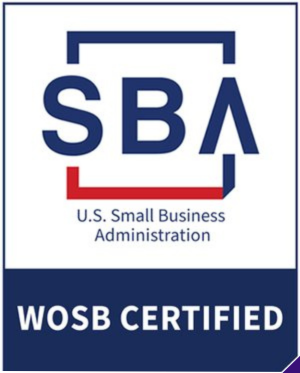Agile and Infrastructure Staffing
ACI was a great partner as we were in the process of maturing our Agile Knowledge and practices. Great guidance to get to a standard and BAU Cadence. ACI is a great educator and their support is exceptional. ACI provided great guidance us in the right direction from an org perspective as well as individual teams. Their Assessments were thorough and detailed to assist in improvement areas

Agile Coach (Senior, Mid-Level)
ACI provides Senior Agile Coaches/ Consultants who guides organizations in adopting and scaling Agile methodologies and practices. They are responsible for coaching and mentoring teams, leaders, and stakeholders to promote an Agile mindset and foster continuous improvement.
The role of a senior Agile coach is crucial in driving successful Agile transformations and ensuring sustained Agile adoption and maturity within organizations. They act as change agents, guiding teams and leaders towards achieving business agility and enabling organizations to respond effectively to market dynamics and customer needs.
Scrum Master
ACI provides Senior Scrum Masters and Mid-Career Scrum Masters who are a facilitative leader and a key role in Agile Scrum methodology. They are responsible for ensuring that the Scrum framework is implemented effectively and that the team follows Agile principles and practices. The Scrum Master plays a vital role in enabling the Scrum team to deliver high-quality products and embrace Agile values. By providing guidance, coaching, and removing obstacles, the Scrum Master helps to maximize the team’s potential, foster continuous improvement, and drive successful Agile implementations.
Product Owner
ACI provides Product Owners and Product Managers who are a critical role in Agile software development, responsible for defining and prioritizing the product or program backlog, maximizing the value of the product, and ensuring that customer and stakeholder needs are met.
The Agile Product Owner serves as the bridge between stakeholders, customers, and the development team, ensuring that the product meets customer expectations, delivers value, and aligns with business objectives. By taking ownership of the product backlog and actively engaging with stakeholders, the Product Owner plays a crucial role in driving the success of Agile projects and delivering high-quality products.
Release Train Engineer (SAFe®)
ACI provides Release Train Engineers who facilitates the successful execution of Agile Release Trains (ARTs) by coordinating and overseeing the program-level processes and activities.
Key responsibilities of a Release Train Engineer include:
Program Coordination: The RTE facilitates the coordination of multiple Agile teams and stakeholders involved in an ART. They ensure alignment of program-level activities, ceremonies, and deliverables across teams to achieve program objectives.
Agile Release Train Planning: The RTE leads the planning process for each Program Increment (PI). They collaborate with product management, product owners, and Agile teams to prioritize features, define objectives, and establish a roadmap for the ART.
Agile Release Train Planning: The RTE leads the planning process for each Program Increment (PI). They collaborate with product management, product owners, and Agile teams to prioritize features, define objectives, and establish a roadmap for the ART.
Dependency Management: The RTE identifies and manages dependencies within the ART and with external teams or stakeholders. They collaborate with other RTEs and stakeholders to resolve dependencies, mitigate risks, and ensure smooth flow of work.
Agile Metrics and Reporting: The RTE tracks and analyzes program-level metrics to assess the performance, progress, and health of the ART. They provide transparency through timely and accurate reporting to stakeholders, allowing informed decision-making and visibility into the program’s status.
Agile Coaching and Facilitation: The RTE provides coaching and guidance to Agile teams and Scrum Masters, helping them understand and adhere to SAFe principles and practices. They facilitate Agile ceremonies, foster collaboration, and support teams in overcoming challenges and achieving their objectives.
Continuous Improvement: The RTE promotes a culture of continuous improvement within the ART. They identify opportunities to optimize the program-level processes, facilitate problem-solving sessions, and encourage teams to experiment with new practices and techniques.
Stakeholder Engagement: The RTE collaborates closely with stakeholders, including product management, business owners, and other program leaders. They ensure alignment between business goals and program execution, manage stakeholder expectations, and act as a liaison between the ART and external stakeholders.
The Release Train Engineer plays a vital role in driving the success of large-scale Agile initiatives by providing program-level coordination, guidance, and support. By fostering collaboration, managing dependencies, and facilitating continuous improvement, the RTE helps ensure the efficient delivery of value, alignment with business objectives, and the successful execution of Agile Release Trains.
ITIL 4, Lean, and DevOps Coaches
ACI provides technical coaches who are experienced professionals who provide guidance and support to individuals or teams in technical disciplines. They possess deep expertise in specific technologies, frameworks, or programming languages and are skilled in mentoring and coaching others to enhance their technical skills and knowledge. Technical coaches play a crucial role in supporting the technical growth and success of individuals and teams. By providing mentorship, training, and guidance, they help organizations improve their technical capabilities, deliver high-quality solutions, and stay at the forefront of technology advancements.
Agile Operations Specialists
ACI provides Agile Operations specialists who are professionals who apply Agile principles and practices to optimize operational processes within an organization. They focus on improving efficiency, collaboration, and agility in operational workflows, enabling teams to deliver value quickly and adapt to changing business needs.
Key responsibilities of Agile Operations specialists include:
Process Optimization: Agile Operations specialists analyze and streamline operational processes to remove inefficiencies and bottlenecks. They identify areas for improvement, implement Agile practices such as Kanban or Scrum, and leverage automation and technology tools to enhance operational efficiency.
Agile Transformation: Agile Operations specialists play a crucial role in driving Agile transformations within operational teams. They guide teams in adopting Agile methodologies, facilitating training sessions, and providing ongoing support and coaching to ensure successful implementation.
Continuous Improvement: Agile Operations specialists foster a culture of continuous improvement within operational teams. They encourage regular retrospectives to reflect on team performance, identify improvement opportunities, and implement actionable changes to enhance productivity and effectiveness.
Cross-Functional Collaboration: Agile Operations specialists promote collaboration and communication across different operational functions. They facilitate cross-functional meetings, encourage knowledge sharing, and establish effective communication channels to align goals, resolve conflicts, and foster a collaborative working environment.
Agile Tools and Metrics: Agile Operations specialists leverage Agile project management tools and metrics to monitor and track operational performance. They implement dashboards, visualizations, and reporting mechanisms to provide visibility into team progress, capacity, and delivery metrics, enabling data-driven decision-making.
Agile Governance: Agile Operations specialists establish Agile governance practices to ensure compliance, risk management, and alignment with organizational goals. They work closely with stakeholders and leadership to define governance frameworks that support Agile operations while addressing regulatory requirements and business objectives.
Agile Mindset and Culture: Agile Operations specialists promote an Agile mindset and culture within operational teams. They encourage autonomy, empowerment, and accountability, fostering a sense of ownership and self-organization among team members. They also advocate for Agile values such as transparency, collaboration, and continuous learning.
Change Management: Agile Operations specialists help teams navigate through change by providing change management support. They anticipate and address resistance to Agile practices, facilitate communication and training sessions, and guide teams through the transition process, ensuring a smooth and successful adoption of Agile operations.
Agile Operations specialists contribute to the operational excellence of an organization by implementing Agile methodologies and principles aligned with ITIL, IT 4 IT, and other standard operational frameworks. By optimizing processes, fostering collaboration, and promoting a culture of continuous improvement, they enable operational teams to respond quickly to market demands, increase efficiency, and deliver value to customers.
Agile Data/Tool Chain Integrator
ACI provides data and tool chain integrators who specializes in integrating data and tools within an Agile environment. They bridge the gap between data engineering, software development, and other stakeholders to ensure seamless data flow, efficient tool utilization, and effective collaboration across teams.
Key responsibilities of an Agile Data/Tool Chain Integrator include:
Data Integration: The Agile Data/Tool Chain Integrator focuses on integrating data from various sources and systems within the organization. They design and implement data pipelines, ensure data quality and integrity, and establish efficient data integration processes to support Agile development practices.
Tool Integration: The Integrator works on integrating and configuring various tools and software applications used in an Agile environment. This includes project management tools, version control systems, testing frameworks, deployment tools, and more. They ensure that these tools are properly integrated and aligned with the Agile workflow to enhance productivity and collaboration.
Toolchain Configuration: The Agile Data/Tool Chain Integrator configures and customizes the toolchain to support Agile development processes. They work closely with development teams and stakeholders to understand their requirements, select appropriate tools, and configure them to optimize efficiency and effectiveness.
Automation and Orchestration: The Integrator automates repetitive tasks and orchestrates the flow of data and processes within the toolchain. They leverage scripting, APIs, and integration platforms to streamline workflows, reduce manual effort, and improve overall efficiency.
Collaboration and Communication: The Agile Data/Tool Chain Integrator facilitates collaboration and communication among different teams involved in the toolchain. They ensure smooth data and information flow, provide training and support to teams on tool usage, and foster a culture of collaboration and knowledge sharing.
Agile Methodologies and Practices: The Integrator is well-versed in Agile methodologies and practices and aligns the data and toolchain integration efforts with Agile principles. They adapt to changing requirements, promote iterative development, and embrace continuous integration, continuous delivery, and DevOps practices.
Troubleshooting and Support: The Integrator troubleshoots issues related to data integration, toolchain configuration, and collaboration. They provide technical support to teams, identify and resolve bottlenecks, and ensure the smooth functioning of the data and toolchain ecosystem.
Continuous Improvement: The Agile Data/Tool Chain Integrator constantly seeks opportunities for improvement in data integration, toolchain configuration, and overall Agile practices. They gather feedback from stakeholders, conduct retrospectives, and implement changes to enhance the efficiency, reliability, and effectiveness of the data and toolchain integration processes.
The Agile Data/Tool Chain Integrator plays a vital role in integrating data and tools within an Agile environment. By ensuring smooth data flow, effective tool utilization, and efficient collaboration, they contribute to the success of Agile projects and enable teams to deliver high-quality software solutions in a timely manner.
Trusted by leading organizations nationwide





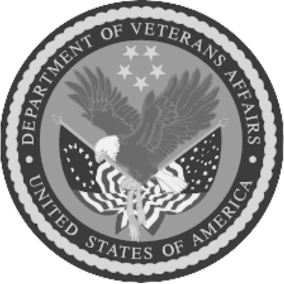




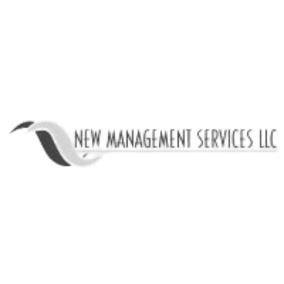


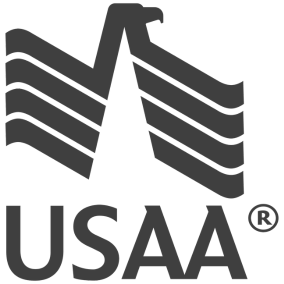
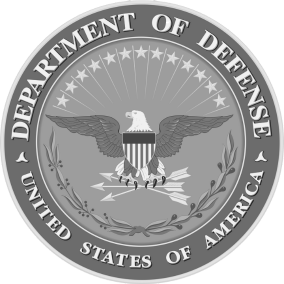
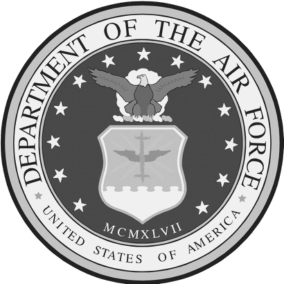



What our clients are saying!

Joshua Kikta
Liberty Mutual Insurance

Elizabeth Shirkey
South State Bank

Ryan Fillman
Digital Management, LLC

Customer Feedback

Customer Feedback







